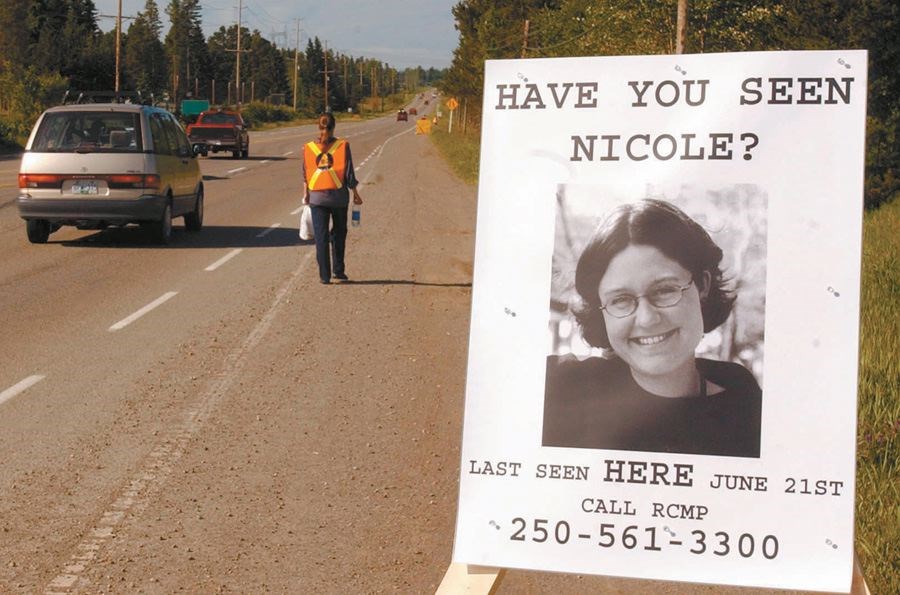A convicted killer long considered a person of interest in the disappearance of a missing woman along northern B.C.'s Highway of Tears is claiming he passed a polygraph test about his involvement in the case.
Leland Switzer, who is serving a life sentence for murdering his brother in 2002, has been the subject of an RCMP investigation into the disappearance of Nicole Hoar, an Alberta woman who was last seen hitchhiking to a music festival in the area two days before the killing.
Investigators looking for Hoar searched Switzer's property for evidence in 2009, and the RCMP has publicly acknowledged he underwent a polygraph test in connection with the case in July 2013.
The RCMP has never disclosed the results of the polygraph test -- but Switzer gave the Parole Board of Canada a letter this week stating he passed it.
The revelation is contained in a written decision denying Switzer's application for parole following a hearing at an undisclosed federal prison in B.C.
The document states he gave the two-person parole panel "a handwritten letter dated July 25, 2013, indicating you had passed the polygraph test."
However, the parole board noted the letter was "not written on official RCMP letterhead," making it difficult to know if it's authentic.
So far, the RCMP hasn't provided any comment about the letter's authenticity, or whether Switzer remains under suspicion.
Switzer, 50, shot and killed his older brother, Irvin, at their parents' home south of Prince George on June 23, 2002.
A judge convicted Switzer of second-degree murder and handed him a life sentence with no chance of parole for 10 years.
Switzer was in custody awaiting trial for his brother's murder when he came to the attention of Project E-PANA, a task force investigating Hoar's case and the unsolved deaths and disappearances of 18 girls and women along three major highways in northern B.C. and Alberta.
E-PANA's cases go back 37 years, and the killings and disappearances happened along three routes -- highways 16, 97 and 5 -- an area that has come to be known as the Highway of Tears.
It's an investigation that faces many challenges, said Ray Michalko, a retired Mountie turned private investigator who began looking into the murders in 2006.
"The biggest problem is that so much time has gone by," he said.
"Witnesses have died, other people who know things -- who knows where they are now?"
In 2012, investigators announced they had evidence linking an American convict who died in 2006, Bobby Jack Fowler, to three killings in 1973 and 1974. Fowler worked as a roofer in Prince George at the time.
Hoar, 25, was working as a tree planter in northern B.C. when she went missing June 21, 2002.
The Red Deer native was hitchhiking to Smithers to visit her sister when she was last seen near a service station on Highway 16 west of Prince George.
The spot isn't far from the two-hectare property formerly owned by Switzer that was searched by police in 2009.
The search and the focus on Switzer was partially his own doing; in 2004, he told police that he had stopped to urinate near the gas station on the night Hoar disappeared. He said he came forward in case investigators found his DNA there.
Two days later, Switzer shot and killed his brother at their parents' home south of Prince George.
The parole board noted Switzer has taken responsibility for the crime and shown progress in rehabilitation programs, but is not yet ready to be released from prison.
"You require monitoring, supervision and a gradual reintegration plan before conditional release. This would include cascading to minimum security, a series of temporary absences and a period of stabilization between each level," the board wrote.


